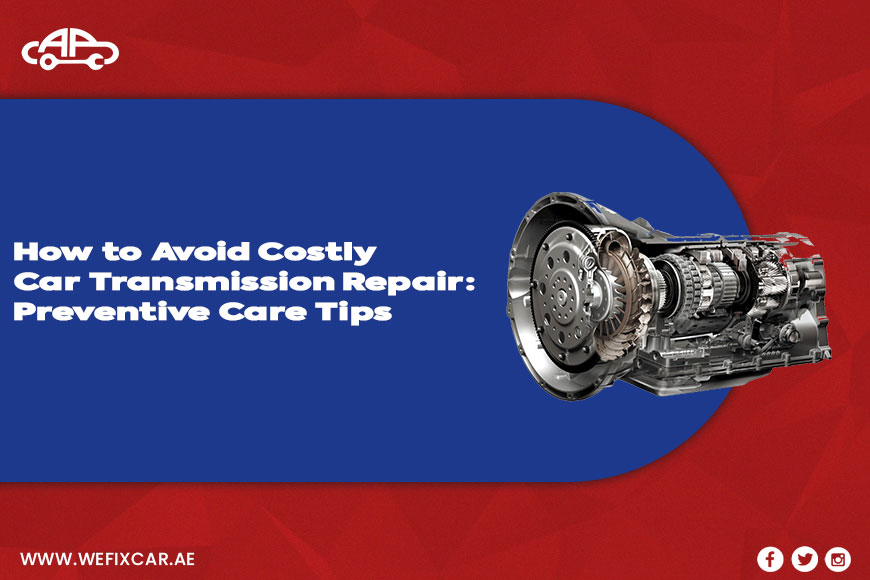How to Avoid Costly Car Transmission Repair Preventive Care Tips
Introduction
Car ownership comes with its fair share of responsibilities, and one of the priciest maintenance areas is car transmission repair. The transmission is like the heart of your vehicle it keeps everything moving smoothly. Ignoring it can lead to unexpected breakdowns and sky-high repair bills. But the good news? With preventive care, you can keep your transmission running efficiently for years. Let’s explore how.
Understanding Your Car Transmission
What is a Car Transmission?
Simply put, a car transmission is a system that transfers power from the engine to the wheels. Without it, your car wouldn’t move, no matter how strong the engine is.
Types of Transmissions: Automatic vs Manual
- Automatic Transmission: Shifts gears on its own, convenient but sensitive to fluid issues.
- Manual Transmission: Requires driver control, generally simpler and cheaper to maintain.
Common Transmission Problems
Some common issues include:
- Gear slipping
- Leaks and worn seals
- Overheating
- Delayed or rough gear engagement
Signs Your Transmission Needs Attention
Ignoring early signs can turn a minor issue into a costly repair. Watch out for:
- Strange Noises: Grinding, whining, or clunking sounds
- Slipping Gears: Transmission unexpectedly changes or pops out of gear
- Delayed Engagement: Lag when shifting from park to drive
- Warning Lights: Transmission or check engine lights on your dashboard
Preventive Maintenance Basics
Regular Transmission Fluid Checks
Transmission fluid lubricates, cools, and protects your transmission. Check it monthly if possible.
Changing Transmission Fluid
Follow your vehicle’s manual old fluid loses effectiveness, increasing wear.
Inspecting for Leaks
Spot puddles or drips under your car? Address them immediately to avoid fluid starvation.
Proper Driving Habits to Protect Your Transmission
- Avoid Aggressive Driving: Hard accelerations and sudden stops stress the transmission.
- Proper Gear Usage: Don’t shift into reverse or park while moving.
- Avoid Overloading: Extra weight makes your transmission work harder.
Transmission Fluid Tips
- Choosing the Right Fluid: Not all fluids are created equal; check your car manual.
- Checking Fluid Levels: Warm up the engine and use the dipstick correctly.
- Dirty or Low Fluid Signs: Burning smell, dark fluid, or unusual noises.
Cooling System and Transmission Health
A hot transmission is a failing transmission. Ensure your radiator, coolant, and fans are in top shape to prevent overheating.
Routine Professional Inspections
Even careful drivers need expert checks:
- Inspect seals, gaskets, and clutches
- Detect small issues before they become catastrophic
- Benefit from professional advice on preventive care
Role of Transmission Filters
Transmission filters trap debris and contaminants. Replace them per manufacturer recommendations to keep fluid clean and the transmission efficient.
Avoid DIY Transmission Repairs
Transmission systems are complex. Attempting a repair without proper knowledge can cause more damage than good. Always consult a certified mechanic.
Driving Conditions That Increase Wear
Certain conditions strain transmissions more:
- Stop-and-go city traffic
- Frequent towing or heavy loads
- Rough terrain or extreme temperatures
Software and Transmission Electronics
Modern cars rely on transmission control modules (TCM) to manage shifting. Regular software updates and recalibration can prevent electronic failures.
Long-Term Care Strategies
- Keep a maintenance log
- Stick to recommended service intervals
- Plan for periodic fluid flushes and inspections
Cost-Benefit Analysis of Preventive Care vs Repair
Preventive care is an investment. Spending $100–$200 on fluid changes and inspections can save thousands on major transmission repairs. Think of it as buying peace of mind.
Conclusion
Preventing car transmission repair is not rocket science. It’s a combination of proper maintenance, careful driving, and timely professional inspections. Treat your transmission with care, and it will keep your car running smoothly for years, saving you from expensive repairs and frustrating breakdowns.
FAQs
Q1: How often should I change my transmission fluid?
A: Typically every 30,000–60,000 miles, but always follow your vehicle’s manual.
Q2: Can I drive with low transmission fluid?
A: It’s risky. Low fluid can cause overheating and severe transmission damage.
Q3: What’s the average cost of transmission repair?
A: It ranges from $1,000 to $4,000 depending on severity and type of transmission.
Q4: Are automatic transmissions harder to maintain than manual?
A: Slightly, because they rely more on fluid and electronics, but preventive care levels the field.
Q5: Can regular inspections really prevent costly repairs?
A: Absolutely. Early detection catches minor issues before they escalate, saving both money and stress.



